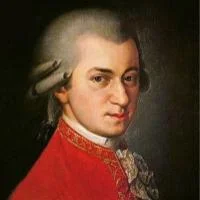Stravinsky’s Rite of Spring does not fit the traditional, semi-predictable mold of melodic and harmonic development. The work demands from its audience an entirely new way of listening to music. There is a requirement of auditory finesse with no shortage of mental agility to understand the piece. Igor Stravinsky’s Rite of Spring was to the 20th century: the single most influential piece of music composed in its time, the game changer, the one work of its century no later composer could avoid.
Read MoreMozart’s first documented concerto for a wind instrument, the Bassoon Concerto in B-flat major, is the only surviving bassoon concerto of the five concertos that he wrote. It is a sad truth that many works from well-known and revered composers simply did not survive, for various reasons. We should be eternally grateful that this beautiful work featuring the often-overlooked member of the wind section did survive.
Read MoreAlthough, by any standard, Mozart was one of the most successful composers in Europe at just 34 years of age, he found himself in serious debt. So when Emanuel Schickaneder, a well-known theater entrepreneur, suggested that they collaborate on a new opera that was sure to be a hit, Mozart jumped at the chance.
Read MoreComposed between January 10 and May 24, 1893 in New York City, “New World” was the first of Dvořák’s so called “American works.” With its references to Negro spirituals, the plantation songs of Stephen Foster, and Longfellow’s “Song of Hiawatha,” it has also been called the first great American symphony.
Read MoreDvořák intended to submit the work for publication by the end of the year, but as is so often the case in artistic endeavors – especially with respect to collaborations – the finale version, as we know it today, would take more than four years to complete. Indeed, the musical journey for this work was prolonged and drawn out for not only personal reasons, but also due to an artistic conflict of vision between the composer and the violinist to whom the work is dedicated.
Read MoreNot even Mozart started composing genuine masterworks until he was 18, and as we all know, Mozart was a musical freak. This brings us to the extraordinary case of Felix Mendelssohn. Simply put, when it came to child prodigies, Mendelssohn left them all in the dust, including the original boy wonder, Wolfgang Mozart.
Read MoreThe Suite from The Polar Express is a musical bouquet of four of the most memorable tunes from the Christmas-themed film starring Tom Hanks.
Read MoreTchaikovsky’s ballet The Nutcracker, completed in 1892, is based on Alexandre Dumas’ 1844 story, “The Nutcracker of Nuremberg”— which in turn is based on E.T.A. Hoffman’s 1816 story, “The Nutcracker and the Mouse King.”
Read MoreFarandole is the finale of Georges Bizet’s L'Arlésienne Suite No. 2, composed as incidental music to Alphonse Daudet’s play of the same name (“The Girl from Arles”). The play, a tragicomedy, is set in a small village in southeastern France and focuses on Fréderi, a young peasant who is driven to suicide after discovering the infidelity of his bride to be (L'Arlésienne).
Read MoreHow the Grinch Stole Christmas! has been a holiday classic since its publication in 1957. Written in rhymed verse and illustrated by Theodor "Dr. Seuss" Geisel (1904-1991), the story follows the Grinch, a grouchy, solitary creature who attempts to put an end to Christmas by stealing Christmas-themed items from the homes of the nearby town Whoville on Christmas Eve.
Read MoreFamous for his “concert music with a pop quality” (his own words), Leroy Anderson (1908-1975) possessed not merely a skill in technique and a rich melodic gift, but also an engaging sense of humor.
Read MoreAlthough I might have had a passing annoyance for Pluto’s unjust omission, it seemed to really irk Kent Nagano, who commissioned Colin Matthews to write a movement to append to The Planets.
Read MoreThe Planets’ popularity lies within its expressive punch. Dramatic power lies on its surface and can be understood viscerally after but a single hearing. The Planets is direct.
Read MoreWith 51 Academy Award nominations and five Academy Awards, John Williams is the most eminent movie score composer in American history.
Read MoreThe work was well received by the audience. In a letter to his brother, Christian, Sibelius wrote, “You couldn't hear a single note of the music — everyone was on their feet cheering and clapping.”
Read MoreCuriously, he found his new home, the Eternal City, rather much and even frightening for the country bumpkin from the Italian countryside. The grandeur and movement of the city, the architectural magnificence, the culture – all this was intimidating, and the hustle and bustle too distracting for his work.
Read MoreBut with Brahms, one had to take the good with the bad. Brahms’ great friend, the Hungarian born violinist and conductor Joseph Joachim (1831-1907), to whom Brahms’ violin concerto is dedicated, famously said that, “Sitting next to Brahms is like sitting next to a barrel of gunpowder!”
Read MoreThe symphony opens in an atmosphere of mysterious beauty. In the first movement, tempo molto moderato, one might imagine time-lapse photography of wildflowers unfolding in a vast landscape, or as Sibelius wrote, “I begin to see dimly the mountain I shall ascend. God opens His door for a moment and His orchestra plays the Fifth Symphony.”
Read MoreElgar did not need to have some unifying theme more than the sea itself in this work. His home audience knew the sea well and did not require an academic discussion to remind them how important it was for their way of life. Pure enjoyment of poetry on the sea set to music sufficed.
Read MoreHe was awed not only by the beauty of the river, but also how the river was an integral method not just for travel, but entertainment. So moved from what he saw, in a span of nineteen days (as noted in his diary), Smetana composed this tone poem to musically portray the river.
Read More



















